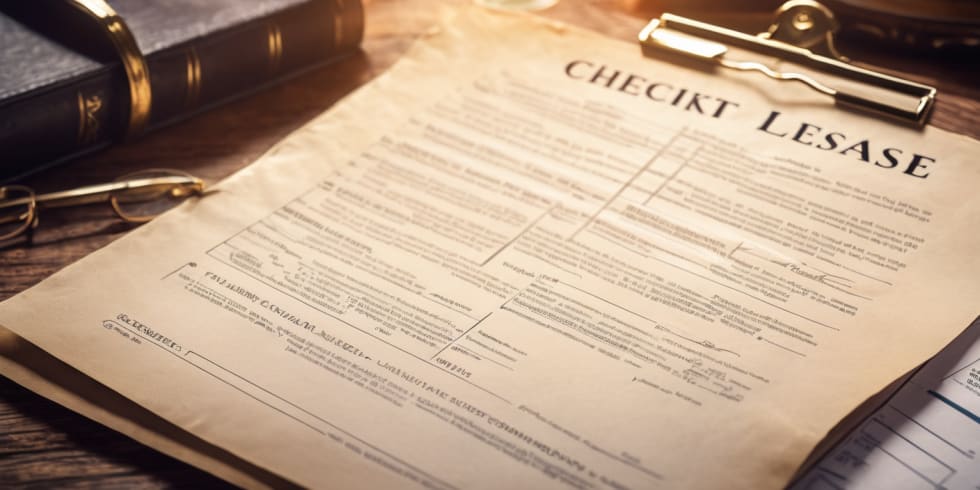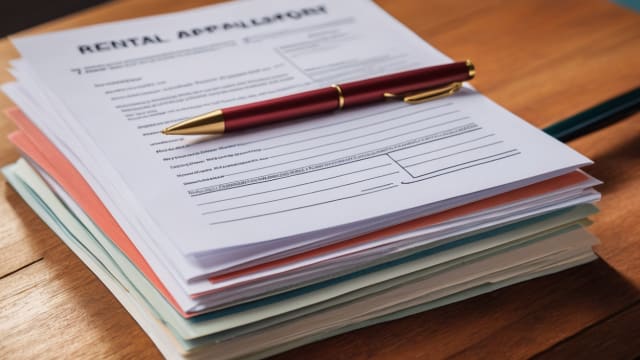First Apartment Lease Guide: Navigating Your Lease with Confidence
Introduction
Stepping into the world of apartment leasing as a college student can feel like navigating a maze without a map, especially when over 60% of students sign their first lease without truly understanding the fine print. This guide is your friendly beacon of light, aiming to demystify the legal jargon and complexities of lease agreements with a blend of humor and essential insights.
Whether you’re a first-year eager to escape the dorms or a graduate on the hunt for your next home, we’re here to arm you with the knowledge needed for a smooth, enjoyable rental journey. From understanding tenant rights to effectively managing roommate dynamics and your budget, let’s embark on this adventure together, ensuring you can sign your next lease with confidence and a well-informed grin.

Understanding Lease Terms
Navigating lease agreements just got easier than acing your last calculus exam. Here’s a quick rundown to clarify the essentials for college students:
- Lease End Dates: Sync these with your academic calendar to avoid being tied down beyond your school year.
- Co-signers: Key for those without a steady income; having a co-signer (like a parent or guardian) means there’s a backup for ensuring rent is paid on time.
- Rent by Bedroom: To dodge roommate squabbles over finances, opt for individual leases. It keeps everyone accountable for their share of the rent.
Now that you’re equipped with the basics of lease agreements, let’s delve into Legal Rights and Responsibilities. Understanding these not only empowers you to navigate your rental experience with ease but also prepares you for a smoother living situation, ensuring you know what to expect and how to address any issues that may arise.

Legal Rights and Responsibilities
A friend of mine, let’s call her Jamie, recently moved into her first apartment near campus. Everything seemed perfect until her kitchen sink started leaking. Jamie, unfamiliar with tenant rights, attempted to fix it herself to avoid any potential conflict with her landlord. Unfortunately, the problem worsened. When she finally reported the issue, her landlord was upset about the delay and initially refused to cover the repair costs, claiming it was Jamie’s responsibility for not reporting sooner. This incident highlights the importance of understanding your rights and responsibilities as a tenant.
Key Tenant Rights:
- Requesting Repairs: You have the right to request repairs and expect them to be carried out in a timely manner, ensuring your living space remains habitable. This includes anything from leaky faucets to heating issues.
- Privacy: Equally important is your right to enjoy privacy in your rental unit. Your landlord must provide notice before entering your apartment, except in emergencies.
Landlord Responsibilities:
- Safe Living Environment: Landlords must provide a safe and habitable living environment, adhering to health and safety codes. This includes ensuring working utilities, secure doors and windows, and maintaining structural integrity.
- Performing Repairs: Landlords are also responsible for performing requested repairs that are not due to tenant negligence.
Understanding these rights and responsibilities can prevent misunderstandings and ensure a respectful and professional relationship with your landlord. For more detailed information on tenant rights specific to your state, I recommend visiting Learn more about your tenant rights at the state level.
Quick Tips for Protecting Your Tenant Rights:
- Document Everything: Keep a record of all communications with your landlord, especially regarding repair requests and notices.
- Know Your Lease: Make sure you understand the terms of your lease, including your rights and responsibilities.
- Seek Legal Advice if Necessary: If you encounter issues with your landlord, consider seeking legal advice to understand your options and protect your rights.
Incorporating these practices into your renting experience can empower you to navigate landlord-tenant relationships confidently. Remember, being informed is your best defense against potential issues in your renting journey.

Financial Considerations
Embarking on the journey to your first apartment is exciting but also introduces a suite of financial responsibilities. Here’s a breakdown to ensure you’re fully prepared:
Essential Expenses as a Renter
- Rent: Your largest expense, so prioritize this in your budget.
- Utilities: Includes electricity, water, and possibly gas—don’t let these slip your mind.
- Groceries: Plan for regular grocery shopping to maintain a healthy lifestyle.
- Internet: Essential for both study and leisure, make sure to factor this in.
- Personal Expenses: From toiletries to textbooks, these can add up quickly.
Must-Have: Renter’s Insurance
Stepping into your first apartment is like diving into a big, exciting world of independence—with a side of adulting that can catch you off-guard. Enter renter’s insurance: the unsung hero of the renting world. Think of it as a safety net for your stuff and yourself. It’s there to catch you if your laptop decides to take a bath or if a friend twists an ankle in your living room. And the best part? It’s cheaper than you’d think, making it a no-brainer for peace of mind. Imagine not sweating over a spilled drink ruining your rug or a break-in swiping your electronics. That’s the comfort renter’s insurance brings to the table.
Hunting for the right policy is less about reading fine print and more about finding a fit for your lifestyle. It’s like online shopping for the perfect pair of jeans, but instead, you’re browsing to protect your belongings and cover potential oopsies. With a few clicks, you can compare prices, check out what’s covered, and secure a policy that won’t break the bank. This little bit of homework means you can focus on making your new place a home, safe in the knowledge that you’re well-prepared for whatever comes your way.
Understanding Deposits and Fees
- Security Deposit: Know how much, when it’s refundable, and what might lead to deductions.
- Additional Fees: Be aware of late fees, damage repair costs, and pet fees to avoid surprises.
- Unexpected Expenses: Always allocate part of your budget for unforeseen costs.
Proper budgeting and understanding the financial aspects of renting can significantly enhance your college living experience, ensuring financial stability and peace of mind.

Avoiding Common Pitfalls
Diving into your first leasing adventure? Arm yourself with these essential insights to dodge common lease agreement pitfalls and ensure a hassle-free renting experience.
- Watch for Changing Terms: Some leases allow landlords to alter terms with minimal notice. Stay alert!
- Guest Rules: Be aware of guest policies to avoid accidental lease violations during movie nights or gatherings.
- Clear Termination Clauses: Understand exactly how and when you or your landlord can end the lease to avoid unexpected moves or overextended stays.
- Late Payment Penalties: Know the consequences of late payments. Even standard grace periods can come with steep fines if you’re not careful.
- Subletting Policies: For students and frequent travelers, ensure your lease allows for subletting or temporary transfers to keep your options open.
- Negotiation Power: Don’t forget, lease terms are negotiable until signed. Speak up about rent, pets, or maintenance terms to better fit your needs.
Staying ahead of these points can make your renting experience smooth and surprise-free.

Preparing for the Lease Signing
As you gear up for the big day—lease signing—it’s crucial to come prepared. The excitement of moving into your first apartment can easily overshadow the importance of this step. To ensure a smooth and stress-free process, here’s the ultimate checklist of documents every college student needs for lease signing, making it as simple as ABC.
Essential Documents for Lease Signing: A Comprehensive Guide
- Valid Photo ID (Driver’s License or Passport): Confirms your identity to the landlord.
- Proof of Income or Financial Support: Pay stubs, scholarship letters, or support from family demonstrate your ability to cover rent.
- Co-signer Agreement (if applicable): If you’re leaning on a co-signer, ensure they’re ready and have all their documents in order too.
- Proof of Renters Insurance: Some landlords require proof of renters insurance before handing over the keys.
- Bank Statements: Recent statements can provide additional proof of financial stability.
- References: From previous landlords or academic advisors, references can vouch for your reliability.
- Checkbook: You’ll likely need to write a check for the security deposit and first month’s rent.
Co-signer 101: Understanding the Role, Responsibilities, and Why You Might Need One
A co-signer is more than just a signature on your lease; they’re your financial backup. For many students stepping into the rental market without a long credit history or steady income, a co-signer is a bridge to securing that lease. This is typically a parent or guardian who agrees to take on the financial responsibility should you be unable to pay rent. It’s a big ask, so ensure you and your co-signer understand the commitments involved. Discuss the responsibilities and scenarios in which they might need to step in. Remember, having a co-signer is not a sign of mistrust but a common practice that provides peace of mind for both you and your landlord.
By having these documents at the ready and understanding the role of a co-signer, you’re setting the stage for a successful lease signing. It’s not just about crossing the ‘t’s and dotting the ‘i’s— it’s about stepping into your new apartment with confidence, knowing you’ve got everything covered.

Additional Tips and Resources
Additional Tips and Resources
Navigating the rental market as a college student can be challenging, but it doesn’t have to be. Here are some additional tips and resources to help you protect your rights and make the most out of your apartment living experience:
-
Navigating landlord issues: Sometimes, despite your best efforts, you may encounter issues with your landlord. When disputes arise, it’s important to know where to turn for help. Tenant rights organizations and legal aid societies can offer guidance and support. Additionally, familiarizing yourself with your state’s tenant-landlord laws can empower you to protect your rights effectively. For more specific guidance, consider visiting USA.gov for state-level information on tenant rights.
-
Join communities: One of the best ways to navigate the complexities of apartment living is by connecting with others in similar situations. Online forums and social media groups dedicated to tenant rights and college apartment living can be invaluable resources. These communities offer a platform to share experiences, seek advice, and find support from peers who understand the unique challenges you’re facing.
-
Organize like a pro: Keeping all your rental documents organized can save you a lot of headaches down the line. From your lease agreement to repair requests and correspondence with your landlord, having everything in one place makes it easier to reference when needed. Consider using stylish file organizers to keep your documents organized and easily accessible. Find the perfect solution for your paperwork with this option on Amazon: Keep your rental documents organized with stylish file organizers.
Additionally, life in a new apartment can sometimes get noisy, especially if you’re sharing walls with neighbors. To ensure peace and quiet, whether you’re studying or just relaxing, consider investing in noise-cancelling headphones. They can be a game-changer for maintaining focus and enjoying downtime without distractions.
Remember, being well-informed and prepared is key to a successful and enjoyable rental experience. With these tips and the right resources at your fingertips, you’re well-equipped to navigate any challenges that come your way.

FAQs
FAQs
Navigating your first apartment lease can bring up a lot of questions. Here are answers to some of the most common queries to help you handle your rental experience with confidence.
What to do if you find discrepancies in your lease agreement?
First, don’t panic. It’s important to carefully review your lease agreement before signing it. If you find discrepancies or terms that don’t match what was discussed, bring them up with your landlord or property manager immediately. It’s possible that these are simple errors that can be corrected. Always ensure that any agreed-upon changes are made in writing to the lease agreement before signing.
How to handle maintenance and repair requests effectively?
Be proactive and respectful when reporting maintenance issues. Document the problem with photos and a written description, and report it to your landlord or property management as soon as possible. Keep a record of all communications regarding the repair request. Landlords are typically responsible for maintaining the property and addressing repairs, but your lease should outline specific procedures for submitting repair requests.
Is it possible to negotiate rent prices or lease terms with your landlord?
Yes, rent prices and lease terms can often be negotiated before signing the lease. If you believe the rent is too high, or if there are specific lease terms you’re uncomfortable with, it’s worth discussing these concerns with your landlord. Come prepared with research on average rent prices in the area and clearly communicate your points. While not all landlords are open to negotiation, many will consider reasonable requests, especially if it helps them secure a responsible tenant.
Found these tips helpful? Share this guide with a friend who’s navigating their first lease.



